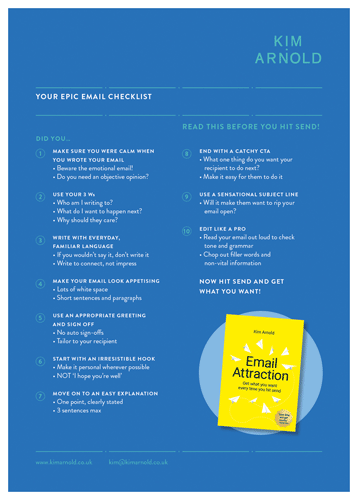In the comic strip, Calvin and Hobbes, Calvin lays down this truth bomb:
“There’s no problem so awful, that you can’t add some guilt to it and make it even worse.”
So true, right?
After all, guilt isn’t a motivating emotion. It doesn’t propel us into the right course of action. It just layers bad feelings on top of an already bad situation.
Feeling guilty doesn’t make us say no to an extra slice of lemon drizzle cake. It just makes us feel bad while we eat it.
But we often lean on guilt to try to get people to do what we want.
Picture this:
You desperately need input from a colleague on a presentation. You’ve emailed them a couple of times, but there’s been radio silence.
You feel more and more frustrated, desperate to get the darn thing finished.
You bash out your third chaser email:
‘I’m not sure if you received my previous emails’ (Ha! Of course they did!) ‘so I just wanted to check the status of my below request. As per my previous emails, please can you review the attached presentation asap.’
You sit back in triumph, proud you’ve made your point so assertively.
But you still don’t get a reply. Why?
Well, your reader is now feeling guilty. They probably remember your two past emails, but for whatever reason (too busy? too difficult?) they haven’t looked at the presentation.
Your third passive-aggressive reminder only makes them want to retreat further from you, not leap into action.
Your guilt trip has backfired.
So what should we do instead to motivate people to (happily) do what we want?
Well, we need to:
1) Ditch the guilt – start with a blank slate. Send a fresh email, as if it’s the first time you’ve written. No more reminders of perceived past wrongs.
2) Provide context – Research shows we’re hard-wired to respond when we’re given a reason, however spurious it might be. So, explain why it’s important to get their feedback (‘You have unique insights into the data that no-one else can give’) and why the deadline is so soon (‘So we can get it to the client before the big meeting next week’).
Try it and let me know how you get on.


